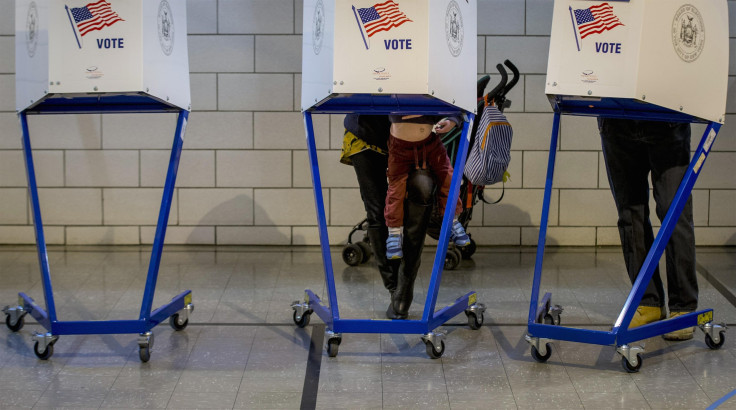Why Are Midterm Elections Important? What's At Stake In The 2014 Election

The 2014 midterms will decide the political future of the country for at least the next two years and possibly beyond should any U.S. Supreme Court justices retire. The most contentious elections are in eight states that will decide which party controls the Senate. Every House member is also up for re-election, but the Republicans are easily expected to hang on to control of the lower legislative chamber. The only question is how many seats will they get. Here’s what you need to know about the 2014 midterm elections:
What's at stake?
Control of the Senate and the House of Representatives, the legislative bodies that shape the country’s federal laws. Republicans are a virtual lock to maintain control of the House and they’re also favored to take control of the Senate from Democrats.
Why is there a good chance Republicans will win the Senate?
For one, President Barack Obama is unpopular, and midterm elections are usually a referendum on the sitting president. Heading into Election Day, 54 percent of Americans disapprove of Obama while 41 percent approve, according to the latest Gallup poll. It also doesn’t help Democrats that Sens. Jay Rockefeller, D-West Virginia, and Tim Johnson, D-South Dakota, chose to retire. Their open seats are expected to be won by Republicans. Democrats also hold seats in Republican-leaning Arkansas and North Carolina, a state that voted for Obama in 2008 but not in 2012.
How many seats are up for grabs?
There are 33 Senate seats up for grabs in the 2014 midterms. Senators serve staggered six-year terms so that every three years either 33 or 34 seats are up. A close eye will be kept on eight battleground Senate seats: Alaska, Colorado, Georgia, Iowa, Kansas, Louisiana, New Hampshire and North Carolina. To a lesser extent, Arkansas and Kentucky may also be pivotal, although the GOP is likely to win both states.
How many seats do Republicans need for a majority in the Senate?
The GOP needs to pick up a net of six seats to reclaim the Senate majority. Should the party suffer a setback in a state it already holds, like with Senate Minority Leader Mitch McConnell's Kentucky contest or Georgia's open Senate seat, it would need to pick up seven seats.
Why is all this important?
The party that controls Congress also controls the agenda in Washington. In the Senate, the majority party is influential over the president’s U.S. Supreme Court nominees since the president’s pick has to be confirmed by the Senate. This means that the future of controversial legislation such as voter ID laws and gay marriage hangs in the balance. Republicans have used their power in the House of Representatives to push against Obama’s legislative agenda. The gridlock would only increase should the GOP win both houses of Congress on Tuesday.
© Copyright IBTimes 2024. All rights reserved.





















